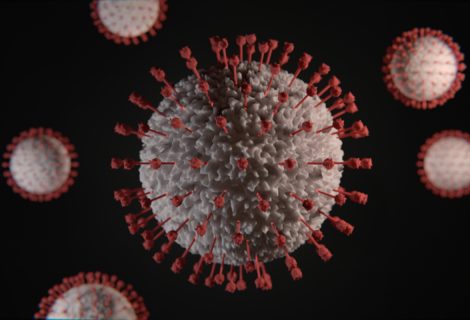What are the causes of mental health Illnesses?
Welcome to the topic “What are the causes of mental health Illnesses?”
With the progression of time over the centuries, mental illnesses have become very common among people of all ages and spheres of life. The technological world has overwhelmed people with its complex workings and uncountable implications. When one in four people start suffering from severe mental health conditions, it is time to delve deeper into the cause of this issue and come up with solutions.
Awareness; A Reason for Rising Cases?
Nowadays, mental health issues are so prevalent that it can be quite challenging to pinpoint specific causes for their occurrence. Some people argue that they are so widespread because of the increased awareness; more people have access to the information most people did not in the past.
Historically, the treatment of individuals with mental health illnesses has not been truly kind. They would either be undiagnosed and outcasted their entire lives or be subjected to harsh or even cruel “treatments” if they were diagnosed. A vast majority of them spent their lifetimes unaware of their actual condition, trying to mask their symptoms and fit into society.
Now that more light has been brought onto these ailments and proper treatment and care is available, more people have the opportunity to get diagnosed and even come forward and be open with their symptoms without the fear of being shunned by society. Some believe this to be a reason for the significant rise in the number of reported cases.

Adverse Effects of Unawareness
The treatment of individuals with certain illnesses has indeed improved over time. However, many still face the societal stigma of having ailments that have not yet been brought to light and understood as much as others. Even despite constant research being poured into them for decades, some psychological diseases are as strange as they used to be in the beginning.
Suicide rates are constantly on the rise all over the world because of such severe disorders that go unnoticed and untreated. Because of awareness around some of these disorders get ignored and get even worse with time and lead to further complications or worse! Even more mental health illnesses.
It is, thus, essential to take note of unusual behaviors, sudden mood swings, and strange outbursts and have basic knowledge of signs to look for to identify them.
Even though taking psychological help from a professional is considered taboo, it is necessary for the well-being of your mental and physical health, as well as the wellness of the people around you.
Common Causes of Mental Illness
So, what are the causes of mental illness? There are countless causes of mental illness, almost different for every person and every disease there is, just like physical illnesses. The most common causes, however, are listed below:
1. Biological Factors
- Genetics: Much like physical ailments, some psychological ailments also run in the family. Genetics plays a significant role in determining one’s vulnerability to not just a few but many disorders (even mental ones). However, the development of these disorders does not depend solely on genetic sensitivity, and thankfully
Other factors might need to be involved in its development. Disorders affected by genetics include anxiety, depression, ADHD, eating disorders and schizophrenia, etc.
- Brain Injury: Research has concluded and found several mental health disorders linked to people who have suffered severe brain damage or trauma or even have chemical imbalances in the brain. Examples include conditions such as Obsessive-Compulsive Disorder (OCD), Bipolar Disorder, and Post-Traumatic Stress Disorder (PTSD).
- Other Mental Health Disorders: Untreated mental illnesses can also pave the way for the development of different illnesses, both physical and mental. For example, improper nutrition resulting from eating disorders can lead to other complications in the brain.
- Serious Diseases: Having life-altering medical conditions such as cancer or even infections from certain types of bacteria have shown to be connected to the development of mental health disorders.
- Antepartum Causes: A mother’s exposure to harmful drugs and chemicals or illnesses that conceive a child can also affect the fetal brain development and lead to certain disorders like autism spectrum disorder.
- Substance Abuse: Substance abuse over extended periods has also been linked to certain mental health illnesses such as anxiety, depression, and paranoia
2. Psychological Factors
- Psychological Trauma in the form of abuse (physical, mental, or sexual)
- Stress and life experiences
- Neglect from parental figures
- Isolation from peers and little to no friends.
3. Environmental Factors
- Family problems such as loss of a loved one, divorce, family dysfunctionality, toxic relationships, etc.
- Financial issues such as poverty
- Sleep deprivation and scarcity of proper self-care and time to oneself and one’s hobbies
- Exposure to drugs or a close one doing drugs
- Stress from societal pressures and feelings of inadequacy
- A notable change in one’s life, e.g., moving cities or changing schools
Common Symptoms of Mental Illnesses
To identify these disorders, it is also essential to be able to identify their symptoms aside from their causes. Some general symptoms include:
- Extreme mood swings and frequent emotional outbursts
- Constant fatigue
- Withdrawal from social situations and friends
- Disconnection from reality
- Significant changes in eating habits
Diagnosis And Treatment of Mental Illnesses
For a correct and accurate diagnosis, it is highly recommended that one seeks professional help. A proper diagnosis usually involves about three things.
- A physical examination
- A psychological examination
- Medical history of the patient
Once diagnosed, the patient will be provided with adequate treatment options depending on the severity of the symptoms. This usually involves active therapy and might even include taking prescribed medication. It might also include educating and empowering the patient enough about their condition for them to be able to manage it or be aware of what to do and what not to do.
In some unfortunate cases, when the illness is extreme, the patients are admitted to psychiatric hospitals where they are to be treated. This is to avoid any chances of the patient hurting themselves or those around them.
Have any questions regarding the topic What are the causes of mental health Illnesses? Feel Free to comment below.
Also Read: What Are the Five Signs of Mental Illness?






